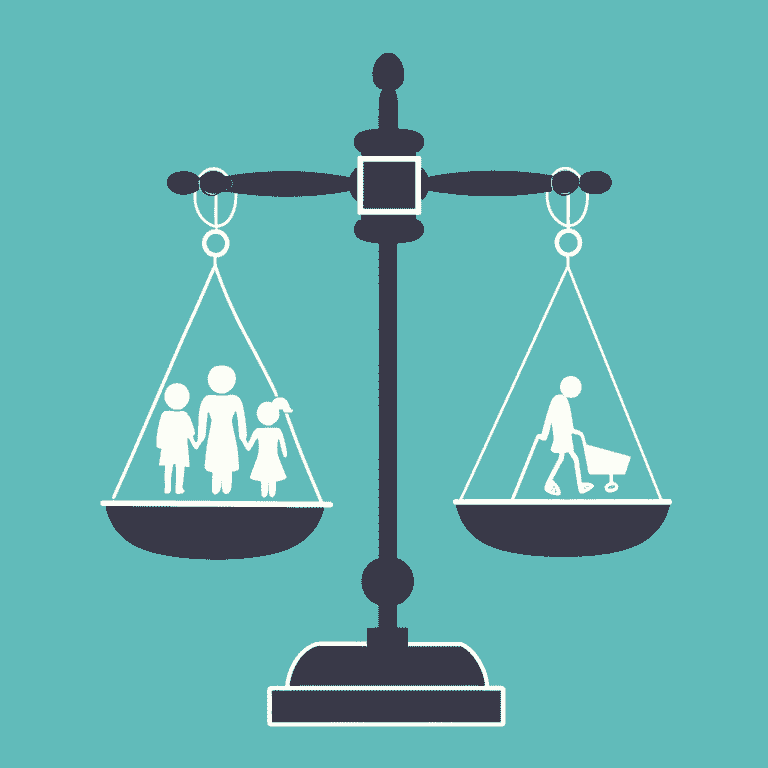People know Las Vegas for its nightlife and entertainment.
But, it also hosts a key part of everyday life – the Family Court.
This court is crucial. It resolves life’s toughest issues, from divorce to child custody.
Understanding the Las Vegas Family Court is essential. This is true for those at the crossroads of family law.
This guide aims to make the process less mysterious. It offers clarity and help for those who need it most.

Understanding the Family Court System in Las Vegas
Definition and Role of Family Court
The Family Court in Las Vegas is a special court. It only deals with matters related to family law. Other courts handle many types of cases. The Family Court focuses on issues that hit closest to home.
Jurisdiction and Responsibilities
The jurisdiction of the Family Court in Las Vegas encompasses:
Divorce and separation cases
Child custody and support matters
Adoption and guardianship
Domestic violence cases
Key Differences from Other Courts
Family Court differs in its approach and sensitivity to the personal nature of its cases. It’s structured to provide a more empathetic environment. It considers the emotional and psychological impact on families.
Structure of the Las Vegas Family Court
The Las Vegas Family Court is set up to handle family cases well. It aims to be efficient and caring.
Overview of the Court Structure
The court has many departments. A judge who specializes in family law heads each one. These departments collaborate to handle cases with the utmost care.
Role of Judges and Court Staff
Family Court judges are not just legal professionals. They’re people who understand family dynamics. The court staff, from clerks to counselors, are trained to help people navigate the complexities of family law.

Types of Cases Handled by the Family Court
Divorce Proceedings
Divorce is a main job of the Family Court. It treats each case with care.
Steps in a Divorce Case
The general steps include:
Filing for Divorce: Initiating the legal process.
Mediation and Settlement: Exploring amicable resolutions.
Child Custody and Support
Child custody and support are among family law’s most emotionally charged issues.
Determining Child Custody
Factors considered in custody decisions include:
The child’s wellbeing
Parental capabilities
The child’s preference (if of suitable age)
Calculating Child Support
Child support in Nevada is calculated based on:
Each parent’s income
The number of children
Special needs of the child, if any
Domestic Violence Cases
The Family Court takes domestic violence cases very seriously. It offers fast processes to protect victims.
Procedures for Domestic Violence Cases
These cases are handled with urgency, providing:
Immediate hearing dates
Protective orders for the safety of victims
This guide gives a basic view of the Family Court system in Las Vegas. Next, we’ll explore how to navigate the legal process. We’ll also cover the resources for support. Then, we’ll offer a conclusion with final thoughts and advice.

Navigating the Legal Process in Family Court
Facing the Family Court can be scary. But, knowing the process can make it easier.
Preparing for Your Case
Preparation is vital to navigating Family Court.
Gathering Necessary Documents
Collecting the proper documents is crucial. Here’s a handy list:
Financial statements (bank accounts, investments)
Property ownership documents
Income verification (pay stubs, tax returns)
Any existing prenuptial agreements
Understanding Legal Representation Options
Deciding on legal representation is a critical step.
Hiring an Attorney: Offers effective guidance and representation.
Self-Representation: Suitable for more straightforward cases but requires thorough preparation.
The Courtroom Experience
Knowing what to expect in the courtroom can ease anxiety and improve preparedness.
What to Expect During Hearings
During hearings, expect the following:
Formal procedures and legal protocols
Presentations by both parties
Questioning by the judge
Role of Evidence and Witnesses
Effectively presenting evidence and witnesses can significantly impact your case.
Evidence: Includes documents, photos, and other tangible proof.
Witnesses: You can testify to support your case.

Resources and Support Services
Navigating family law isn’t just about laws. It’s also about support and guidance.
Legal Aid and Help in Las Vegas
Legal aid can be invaluable for those facing financial constraints.
Free and Low-Cost Legal Services
Several organizations in Las Vegas offer assistance:
Legal Aid Center of Southern Nevada
Nevada Legal Services
Volunteer attorneys providing pro bono services
Counseling and Emotional Support Resources
Taking care of your emotional health is crucial during these challenging times.
Accessing Counseling Services
Counseling services available in Las Vegas include:
Family counseling centers
Support groups for divorce and domestic violence
Individual therapy sessions

Breaking It All Down for You
Navigating the Family Court in Las Vegas is complex. But, preparation, understanding, and support can be a path to a new beginning. This guide aims to give you the knowledge and resources you need. They will help you approach your legal challenges confidently. Remember, you’re not alone in this process; help and support are available every step of the way.

Frequently Asked Questions
What should I wear to a Family Court hearing in Las Vegas?
Dressing formally and conservatively is recommended for court hearings. Think business attire – a suit or dress shirt and slacks for men and a conservative dress or suit for women.
How long does a typical divorce case take in Las Vegas Family Court?
The duration of a divorce case can vary widely. An uncontested divorce might take a few weeks. In contrast, contested cases can take several months to over a year, depending on the complexity and the level of agreement between the parties.
Can I bring the children to the Family Court?
It’s generally advised not to bring children to court unless required for testimony, which is rare. If you must bring them, check if the court has childcare facilities or services.
Are there online resources for filing documents with the Family Court in Las Vegas?
Yes, the Family Court offers online services for filing certain documents. Check the Clark County Family Court website for specific services and instructions.
What is the process for appealing a Family Court decision in Las Vegas?
Appeals from Family Court decisions are made to the Nevada Supreme Court. This process requires filing a notice of appeal and preparing legal briefs and, potentially, oral arguments.
Is mediation mandatory in divorce cases in Las Vegas Family Court?
Mediation is not mandatory for all divorce cases but is strongly encouraged and sometimes ordered by the court, especially in disputes involving child custody and visitation.
How is spousal support determined in the Las Vegas Family Court?
Spousal support (alimony) is determined based on several factors, including the duration of the marriage, each spouse’s financial condition, earning capacity, and contributions to the wedding.
Can I request a change of judge in my Family Court case?
Sometimes, you may request a change of judge, known as a “peremptory challenge.” This must be filed within a specific time frame and only under certain conditions.
What if I can’t afford the filing fees for a case in Family Court?
You may apply for a fee waiver if you cannot afford the filing fees. The court will review your financial situation to determine if you qualify.
Are there any specific rules for electronic devices in the Family Court?
Yes, the use of electronic devices is typically restricted in the courtroom. It’s best to turn off cell phones and other devices before entering; photography and recording are usually prohibited.
Remember, these answers provide general guidance, and it’s always best to consult a legal professional for specific advice.

Glossary
Affidavit: A written statement confirmed by oath or affirmation, used as evidence in court.
Alimony: A legal obligation to provide financial support to a spouse before or after marital separation or divorce.
Child Custody: The legal right or duty to care for a child after a divorce or separation, including decisions about the child’s upbringing, education, and health care.
Child Support: Financial payments made by a non-custodial parent to a custodial parent towards raising their child.
Contested Divorce: A divorce where the parties disagree on critical issues such as property division, child custody, or spousal support.
Decree of Divorce: The final court order that officially ends a marriage, detailing the rights and obligations of each party.
Domestic Violence: A pattern of behavior in any relationship that is used to gain or maintain power and control over an intimate partner.
Guardianship: A legal process where a person is given the legal right to decide for another person (such as a child or incapacitated adult).
Jurisdiction: The official power to make legal decisions and judgments, typically in a specific geographic area.
Mediation: A method of dispute resolution involving a neutral third party who helps the disagreeing parties find a mutually agreeable solution.
Peremptory Challenge: A defendant’s or lawyer’s objection to a proposed juror, made without needing to give a reason.
Prenuptial Agreement: A written contract entered into by a couple before marriage outlining the ownership of assets and how they will be divided in case of divorce.
Pro Bono: Legal work is undertaken voluntarily and without payment or at a reduced fee as a public service.
Self-Representation: Representing oneself in court proceedings without the assistance of a lawyer.
Settlement: An agreement the parties reach in a lawsuit, typically resolving the case without a trial.
Spousal Support: Financial support paid by one spouse to another after a divorce. It is similar to alimony.
Uncontested Divorce: A divorce in which both parties agree on all major issues, such as property division, child custody, and spousal support.
This glossary provides vital terms that are often used in the context of Family Court proceedings, especially in Las Vegas. Understanding these terms can help you better navigate the legal process and communicate more effectively with legal professionals.

Additional Resources for You
Our lead attorney, Molly Rosenblum, Esq., has not only demonstrated exceptional legal prowess but has also taken the initiative to create a suite of valuable resources for those navigating the complexities of family law in Nevada. These resources provide crucial information and guidance, ensuring that you are well-informed and prepared to handle various aspects of family law. Here’s a summary of the resources available at your disposal:
Las Vegas Family Law Attorneys: This comprehensive resource offers insights and legal expertise on family law matters, ensuring you have the support and knowledge needed during these challenging times. Explore the resource.
Family Court Las Vegas: Navigate the intricacies of the family court system in Las Vegas with this detailed guide, designed to help you understand the process and what to expect. Learn more.
Common Law Marriage in Nevada: Get clarity on the status and implications of common law marriage in Nevada, a topic surrounded by myths and misconceptions. Understand the details.
Name Change Las Vegas: Whether due to marriage, divorce, or personal choice, this resource guides you through the legal process of changing your name in Las Vegas. Start the process.
Nevada Power of Attorney: Learn how to legally assign someone the power to make decisions on your behalf in Nevada, a critical step in planning for the future. Explore the steps.
How to File a Motion in Family Court: Understand the procedural aspects of filing a motion in family court, ensuring your legal actions are correctly executed. Learn the procedure.
Family Court Mediation: Discover the benefits and process of mediation in family court, a method that can save time, reduce conflict, and lead to mutually agreeable outcomes. Understand mediation.
Unbundled Attorney: Learn about the option of hiring an unbundled attorney for legal services, which can be a cost-effective solution for specific legal needs. Explore your options.
Nevada Adoption: Navigate the adoption process in Nevada with this guide, providing you with essential information to start your journey toward expanding your family. Begin the adoption process.
Molly Rosenblum, Esq., through these meticulously prepared resources, demonstrates a commitment to providing support and guidance to those dealing with family law matters. We encourage you to make use of these resources, ensuring that you are well-informed and prepared for the legal processes ahead.

Offsite Resources You May Find Helpful
ere are seven offsite resources that you may find useful in relation to the content:
American Bar Association: This is a rich resource for general legal information, including family law. Visit Site
FindLaw: A comprehensive resource for legal information, including articles and guides on family law and divorce. Visit Site
Avvo: Offers a wealth of legal advice and a directory to find family law attorneys across the United States. Visit Site
Justia: Provides free access to a wide range of legal resources, including case law and statutes, particularly useful for family law research. Visit Site
National Domestic Violence Hotline: Essential for those dealing with domestic violence situations, offering support and advice. Visit Site
Child Welfare Information Gateway: Provides information and resources related to child welfare, including custody and support issues. Visit Site
Psychology Today: While not a legal resource, it offers valuable insights and articles on dealing with the emotional aspects of divorce and family disputes. Visit Site
These resources offer a wide range of information and support that can be beneficial for anyone navigating family law issues.

A Special Message from Our Lead Attorney

Molly Rosenblum, Esq
Dear Reader,
Thank you for exploring our comprehensive resources on navigating the complexities of family law in Las Vegas.
I hope you found the information insightful and empowering as you embark on resolving your legal matters.
At The Rosenblum Allen Law Firm, we understand that every situation is unique, and personal attention is critical. If you’re ready to take the next step, I invite you to call me and my dedicated team at (702) 433-2889.
We can discuss the best course of action for your specific circumstances and start working towards a resolution.
Looking forward to assisting you,
Molly Rosenblum, Esq.


